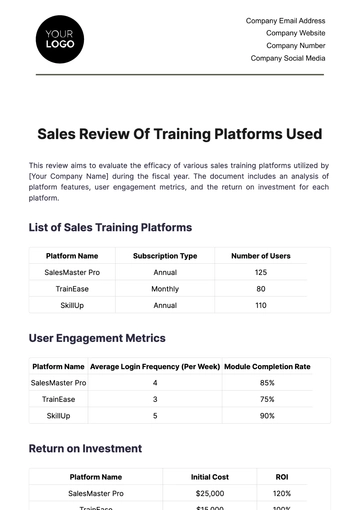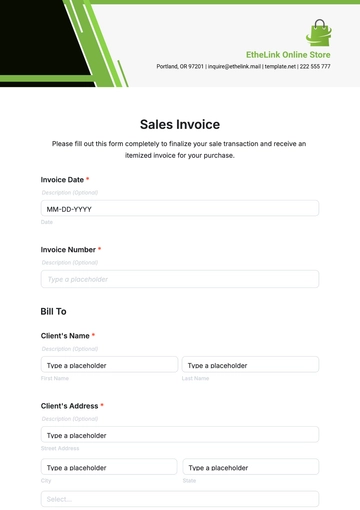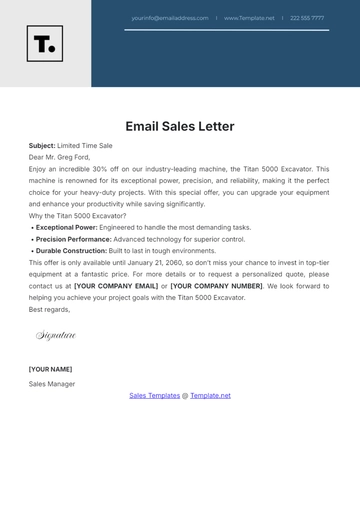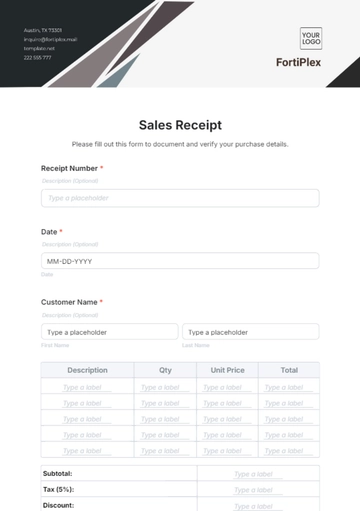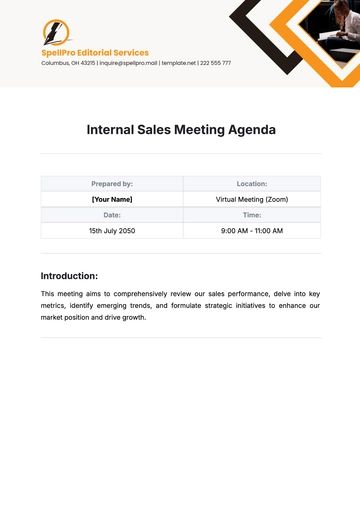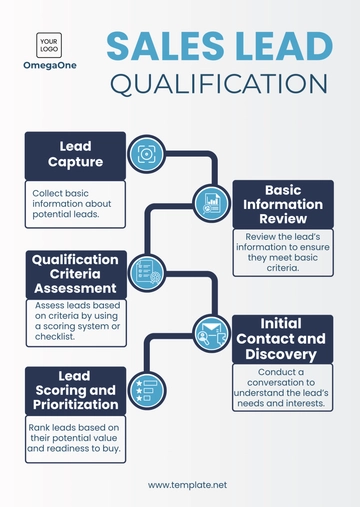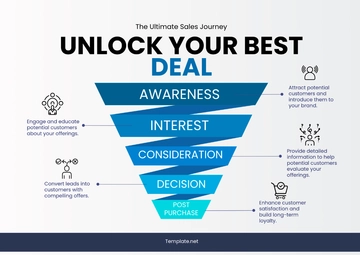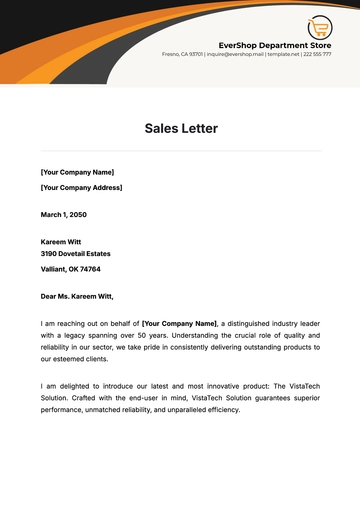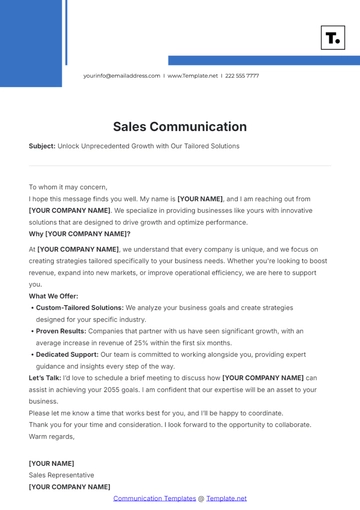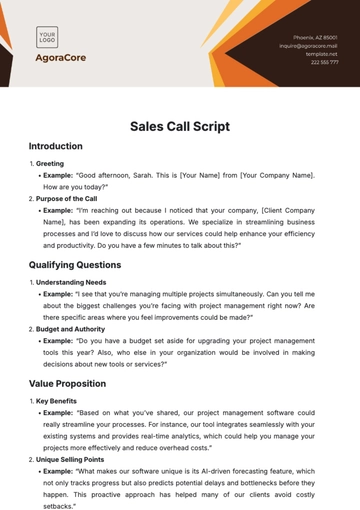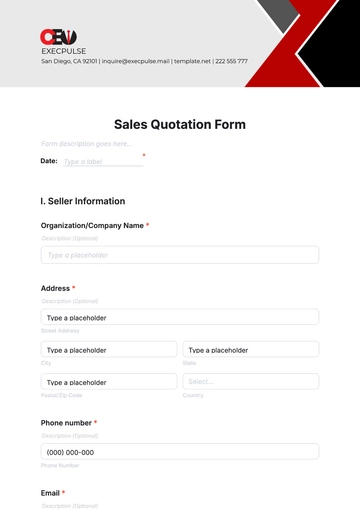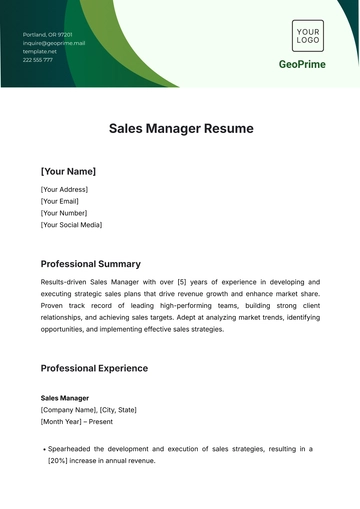Free Onboarding Impact on Sales Performance Study

I. Executive Summary
In today's highly competitive business landscape, the success of [Your Company Name] hinges significantly on the effectiveness of their sales teams. A pivotal but often overlooked factor in achieving superior sales performance is the onboarding process. This executive summary encapsulates the key findings and recommendations from our comprehensive Sales Study on the Impact of Onboarding on Sales Performance.
Key Findings
Immediate Impact: An effective onboarding process results in an immediate boost in sales performance. New hires who receive structured training and orientation are more likely to hit the ground running, demonstrating higher product knowledge, better sales techniques, and increased customer engagement from the outset.
Long-term Performance: The benefits of onboarding extend beyond the initial stages. Companies that invest in continuous learning and development for their sales teams witness sustained high performance over time. This includes increased employee retention rates, elevated customer satisfaction levels, and consistent sales growth.
Onboarding Best Practices: Successful onboarding programs share common best practices. These include clear communication of company values and objectives, personalized training plans, mentorship programs, and regular performance evaluations. Companies should tailor their onboarding processes to suit their specific industry, products, and culture.
In conclusion, a well-structured onboarding process is a critical driver of sales performance in [Your Company Name]. It not only ensures a strong start for new hires but also fosters continuous growth and excellence over time. By implementing the recommended best practices and investing in continuous learning, development, and performance monitoring, [Your Company Name] can expect to see significant improvements in their sales teams' effectiveness, ultimately leading to enhanced competitiveness and growth in the ever-evolving IT industry.
This executive summary provides a snapshot of our in-depth Sales Study. For a more comprehensive understanding of the research findings and detailed recommendations, please refer to the full study.
II. Introduction
In the fast-paced and competitive landscape of the Information Technology (IT) industry, the ability to drive sales growth and maintain a competitive edge is paramount. Success in sales is not merely about having exceptional products or services; it's about the people behind the sales force and how well they are equipped to meet the unique challenges of this dynamic field. At the heart of this human-centric approach to sales excellence lies the process of onboarding.
A. The Significance of Onboarding
Onboarding is a multifaceted process that extends far beyond the mere administrative formalities of welcoming new hires. It encompasses the systematic integration of individuals into an organization, providing them with the knowledge, tools, and resources essential for them to excel in their roles. In the context of [Your Company Name], where technology, innovation, and market dynamics evolve at a rapid pace, the role of onboarding becomes even more critical.
Effective onboarding in [Your Company Name] is not just about ensuring that new sales team members can find their desks and log into their computers—it is about enabling them to thrive in an environment characterized by technological complexity, market intricacies, and evolving customer expectations. This process sets the foundation for their success, facilitating their ability to navigate these challenges, engage with clients effectively, and contribute to the organization's bottom line.
B. The Research Objective
This comprehensive study delves deep into the impact of onboarding on sales performance within the IT industry. Our objective is to examine how a well-structured and strategic onboarding process can significantly influence sales outcomes, both in the short term and long term.
III. Methodology
A. Data Collection
Selection of Participating Companies
To ensure a representative sample, ten [Your Company Name] were selected for participation in the study. These companies were chosen based on their diversity in terms of size, industry focus, and geographical location.
A mix of startups, mid-sized firms, and large enterprises was included to capture a broad spectrum of experiences and practices.
Data Sources
The following sources were utilized for data collection:
Sales Performance Metrics: Quantitative data regarding sales performance, including revenue growth, sales targets, conversion rates, and customer satisfaction scores, were obtained directly from the participating companies. Historical sales data were also collected to assess long-term trends.
Onboarding Processes: Detailed information on each company's onboarding process was documented. This included the duration of the onboarding program, content covered, training methodologies, and any unique features tailored to the IT industry.
B. Data Analysis
Quantitative Data Analysis
Quantitative data collected, including sales performance metrics, were subjected to statistical analysis.
Key performance indicators (KPIs) such as revenue growth, sales targets achievement, and conversion rates were analyzed to identify trends and correlations.
Qualitative Data Analysis
Qualitative data, primarily employee feedback and insights from interviews and focus groups, underwent content analysis.
Common themes and patterns in responses were identified to gain a deeper understanding of the perceived impact of onboarding on sales performance.
Cross-Analysis
Qualitative and quantitative data were triangulated to validate findings and draw comprehensive conclusions.
By cross-referencing the quantitative performance metrics with qualitative insights, a holistic view of the relationship between onboarding and sales performance was developed.
IV. Onboarding Process
In the realm of Information Technology (IT) companies, where staying at the cutting edge is imperative for success, a well-structured onboarding process is a fundamental pillar of ensuring that newly hired sales team members can contribute effectively and adapt to the ever-evolving landscape. This section provides an in-depth overview of the typical onboarding process within [Your Company Name], highlighting its key components and objectives.
A. Recruitment and Selection
The onboarding journey begins with the recruitment and selection process. [Your Company Name] strive to identify individuals who not only possess the requisite skills and qualifications but also align with the organization's culture and values. This phase involves:
Talent Acquisition: Identifying potential candidates through various channels, including job postings, recruitment agencies, and referrals.
Screening and Interviews: Conducting rigorous interviews, technical assessments, and background checks to evaluate candidates' technical proficiency and cultural fit.
Offer and Acceptance: Extending offers and ensuring a smooth transition from the candidate's previous role or organization.
B. Orientation and Induction
Once new hires accept their offers, the orientation and induction phase begins. This phase aims to make employees feel welcome, informed, and integrated into the company culture. Key activities include:
Welcome Sessions: Providing an overview of the company's history, mission, values, and culture.
Administrative Tasks: Completing necessary paperwork, including contracts, benefits enrollment, and tax forms.
Office Tour: Familiarizing new hires with the physical workspace and facilities.
Technology Setup: Configuring workstations, email accounts, and access to essential software and tools.
C. Training and Development
Training and development constitute a significant portion of the onboarding process within [Your Company Name]. Given the rapidly evolving nature of technology and products, equipping sales team members with the right knowledge and skills is critical. This phase includes:
Product and Service Training: Providing comprehensive training on the company's products, services, and solutions.
Sales Techniques: Offering sales-specific training, including negotiation skills, objection handling, and effective communication.
Technology Training: Familiarizing sales team members with the tools and platforms they will use, such as Customer Relationship Management (CRM) software and technical documentation.
Industry Insights: Keeping new hires updated on industry trends, market dynamics, and competitors.
V. Onboarding’s Influence on Sales
The effectiveness of an IT company's sales team is a critical determinant of its success and growth in a highly competitive market. In this section, we explore how the onboarding process directly influences sales performance. We analyze the impact of onboarding on both short-term and long-term sales outcomes, shedding light on the pivotal role this process plays in driving revenue, customer satisfaction, and overall business success.
A. Short-Term Effects
One of the immediate benefits of a well-structured onboarding process is the rapid acquisition of product knowledge. Sales team members who undergo comprehensive product training during onboarding are better equipped to understand and articulate the value proposition of the company's offerings. This knowledge boost leads to:
Improved Customer Interactions: Sales professionals can confidently engage with potential clients, addressing their inquiries and concerns effectively.
Reduced Learning Curve: New hires can quickly grasp the intricacies of complex IT solutions, resulting in shorter sales cycles.
B. Long-Term Effects
A well-designed onboarding process sets the stage for long-term employee retention. Sales professionals who feel valued and equipped for success are more likely to remain with the company. The long-term benefits include:
Reduced Turnover: Lower turnover rates mean reduced recruitment and training costs.
Cultural Continuity: Sales teams benefit from experienced members who contribute to sustaining the company's culture.
VI. Key Findings
The extensive research and analysis conducted in this study have yielded valuable insights into the relationship between onboarding and sales performance within the IT industry. These key findings provide a comprehensive understanding of how a well-structured onboarding process can significantly influence both short-term and long-term sales outcomes.
A. Immediate Impact
Product Knowledge and Confidence
New sales team members who undergo comprehensive product training during onboarding exhibit a significantly higher level of product knowledge and confidence.
This knowledge boost translates into more effective customer interactions, reduced learning curves, and a quicker grasp of complex IT solutions.
Enhanced Sales Techniques
Effective onboarding programs that encompass sales techniques and strategies result in sales team members with refined skills in objection handling, negotiation, and closing deals.
These improved skills lead to higher conversion rates and increased deal sizes, positively impacting revenue in the short term.
B. Long-Term Impact
Employee Retention
A well-designed onboarding process significantly contributes to long-term employee retention.
Sales professionals who feel valued and equipped for success are more likely to remain with the company, resulting in lower turnover rates and cultural continuity.
Customer Satisfaction and Loyalty
Sales team members who have a strong foundation provided by onboarding are better positioned to build lasting relationships with clients.
This long-term effect includes increased customer satisfaction, repeat business, and referrals, all of which contribute to customer loyalty and organic growth.
VII. Recommendations
The key findings of this study highlight the critical role of onboarding in shaping sales performance within [Your Company Name]. To harness the potential of onboarding and maximize its impact, we present a set of detailed recommendations. These recommendations are divided into two main categories: Onboarding Best Practices and Continuous Training and Development.
A. Onboarding Best Practices
Tailor Onboarding Programs
Customization: Tailor the onboarding process to align with the specific needs and nuances of your IT company. Ensure that the content and duration of the onboarding program suit your industry, products, services, and corporate culture.
Comprehensive Product Training
Product Knowledge: Invest in comprehensive product training to equip sales team members with an in-depth understanding of your offerings. Ensure they can articulate the value proposition effectively.
B. Continuous Training and Development
Ongoing Learning Opportunities
Access to Resources: Provide access to a range of learning resources, including online courses, webinars, and workshops. Encourage self-driven learning to keep sales professionals updated on industry trends.
Performance Reviews and Goal Setting
Regular Evaluation: Conduct regular performance reviews and goal-setting sessions to track progress and identify areas for improvement. Ensure that managers play an active role in providing constructive feedback.
VIII. Conclusion
In the dynamic and fiercely competitive landscape of the Information Technology (IT) industry, where sales success is pivotal to a company's growth and prosperity, the role of onboarding in shaping sales performance has been unequivocally established. This study has unearthed a wealth of insights into how a well-structured and strategic onboarding process significantly influences sales outcomes, both in the short term and the long term.
A. Short-Term Impact
In the short term, a robust onboarding process yields immediate benefits that ripple through the sales team:
Product Knowledge and Confidence: New hires enter the field with a deep understanding of products, instilling confidence in client interactions.
Enhanced Sales Techniques: Sales team members possess refined sales skills, contributing to higher conversion rates and larger deal sizes.
Immediate Engagement: New employees feel a strong sense of belonging and engagement, leading to positive attitudes and effective collaboration.
B. Long-Term Impact
As the onboarding journey continues, its impact extends into the long term, profoundly shaping the success trajectory of sales teams and organizations:
Employee Retention: A well-designed onboarding process contributes to lower turnover rates and the continuity of organizational culture.
Customer Satisfaction and Loyalty: Sales professionals equipped with a strong onboarding foundation build lasting client relationships, resulting in increased customer satisfaction, repeat business, and referrals.
Consistent Sales Growth: Over time, the cumulative effect of onboarding manifests in consistent revenue growth and the ability to explore new markets.
Continuous Learning and Adaptation: Ongoing development opportunities ensure sales teams remain adaptable, resilient, and competitive in an ever-evolving IT landscape.
C. Strategic Implications
This study underscores the strategic importance of onboarding within [Your Company Name]. It is not merely a routine process but a dynamic investment in human capital that directly influences sales performance. By implementing the recommended best practices for onboarding and emphasizing continuous training and development, [Your Company Name] can position themselves for success in the following ways:
Enhanced Competitiveness: A highly competent and confident sales team is better equipped to compete effectively in the IT market.
Consistent Sales Growth: The ripple effect of onboarding leads to consistent revenue growth and the ability to capitalize on emerging opportunities.
Resilience: Adaptability and continuous learning make [Your Company Name] resilient in the face of market disruptions.
Sustained Success: Through a commitment to investing in their sales teams, [Your Company Name] can look forward to sustained success in a dynamic and competitive environment.
IX. Future Directions
As the IT industry continues to evolve, the relationship between onboarding and sales performance will remain a topic of ongoing exploration. Future research may delve deeper into specific aspects of onboarding, such as the impact of technology-driven onboarding tools and the measurement of return on investment (ROI) for onboarding initiatives.
This study underscores the pivotal role of onboarding in shaping sales performance within [Your Company Name]. The immediate and long-term effects on product knowledge, sales techniques, employee retention, customer satisfaction, and sales growth highlight the tangible benefits of a well-structured onboarding process. By embracing the recommendations provided in this study, [Your Company Name] can leverage onboarding as a strategic driver of success, positioning themselves for sustained growth, resilience, and competitiveness in the ever-evolving IT industry.
- 100% Customizable, free editor
- Access 1 Million+ Templates, photo’s & graphics
- Download or share as a template
- Click and replace photos, graphics, text, backgrounds
- Resize, crop, AI write & more
- Access advanced editor
Discover the power of streamlined sales onboarding with our Onboarding Impact on Sales Performance Study Template from Template.net. Crafted for efficiency, it offers an editable and customizable framework to analyze the transformative effects of onboarding processes. With our AI Editor Tool, delve into comprehensive insights to optimize your sales team's performance from day one.







